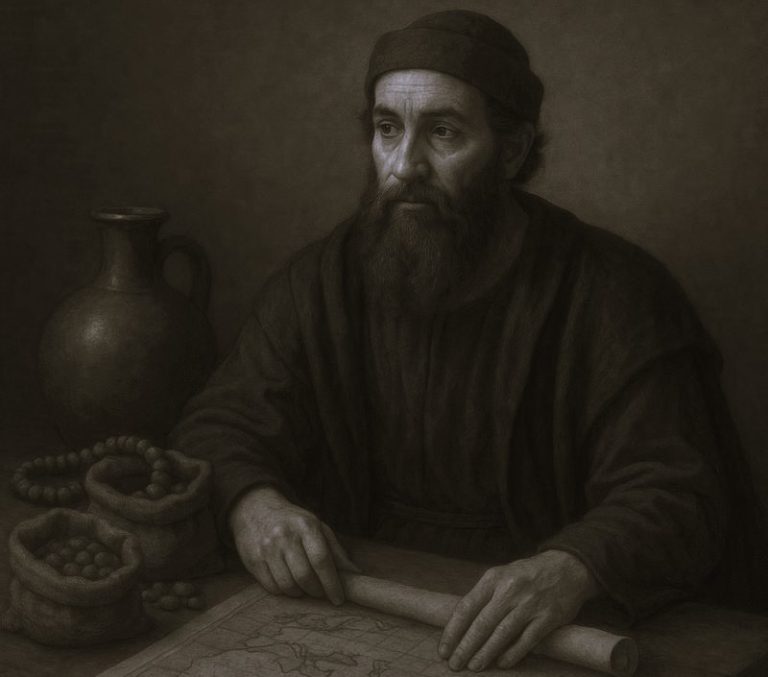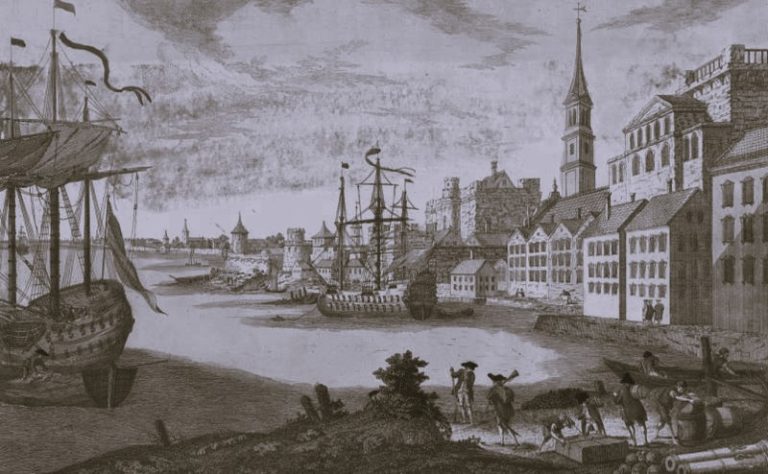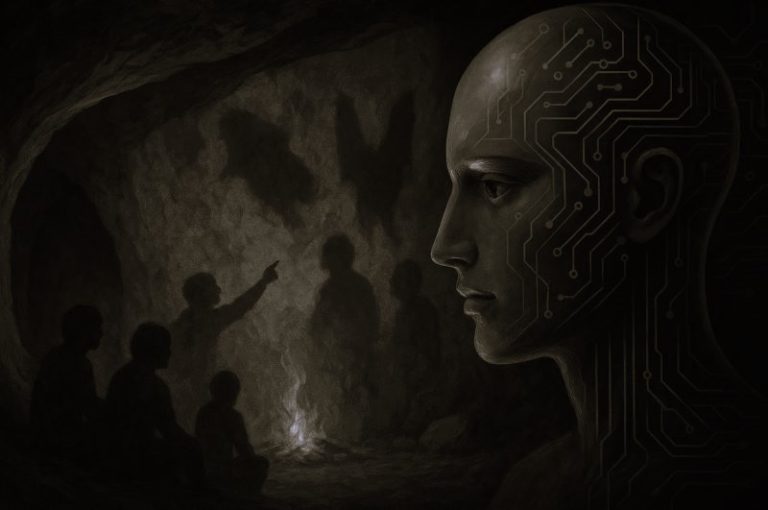
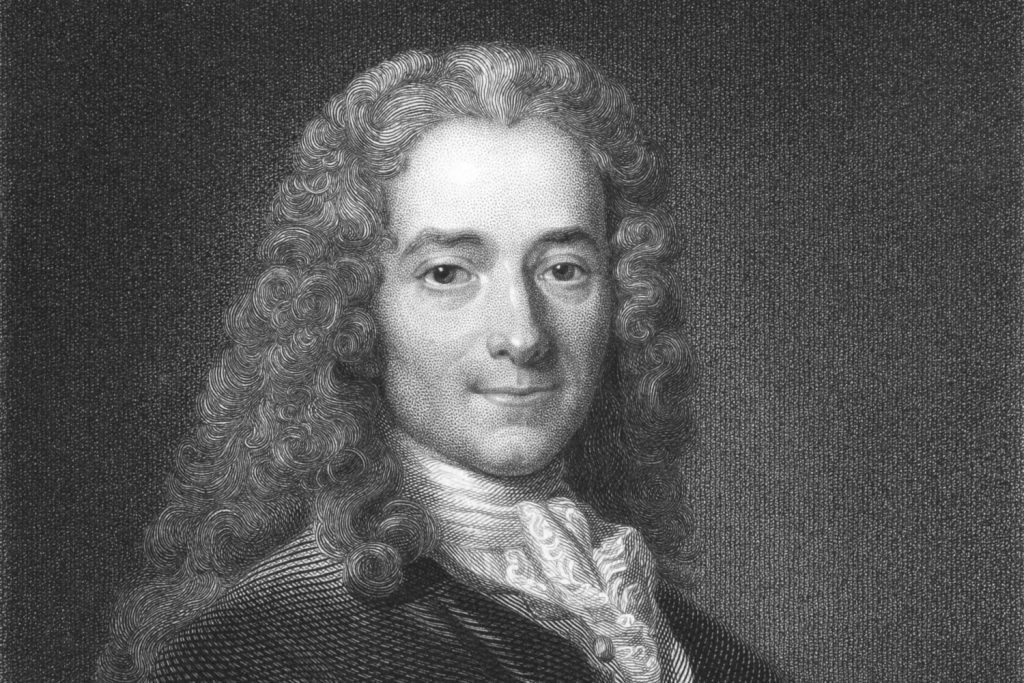
Criticism of the monarchy in the press was suppressed during this period.
By Jennifer Hight
Introduction
The Age of Reason, also known as the Enlightenment, emerged from the Protestant Reformation and emphasized reason and individualism, which was a new thought process.[6] This Enlightenment caused many new writers, philosophers, and artists to question the traditional authority. The authority that was most questioned during this period of time was the monarchy.
The various monarchies throughout Europe were afraid that this movement would be disruptive to the old orders. The Enlightenment raised questions about the rule of monarchs which made many nobles nervous, and questioned the authority of the Catholic Church.[6] To these powers that had held firm control of Europe since the Middle Ages, the writers of the Enlightenment were a threat that would disrupt their carefully held power.

One nation in particular was very wary when it came to dealing with this new Age of Reason. France had been under the control of a very powerful monarchy since the formation of the nation. However, by the time of the Enlightenment that monarchy had begun to weaken and allowed for more dissent to begin to grow. Under the pitiful rule of King Louis XV, the new movement undermined the monarchy at every turn.[5] The monarchy began to enforce strict censorship laws against these writers.
The censorship in France made it so there was no political criticism in the press at all during this time period. Any writers who would be caught violating this rule would be thrown in prison, no questions asked.[2] These harsh enforcements kept many writers compliant with the French monarchy, the new disruptive Enlightenment created more and more writers who refused to conform to the censorship laws. One such writer in the Age of Reason was Voltaire. Originally the French court’s pet writer, Voltaire would manage to get himself banished and had many of his works banned from France due to the censorship laws.[2]
Voltaire and His Interesting Life Choices
On November 21, 1694 one of the most notable Enlightenment writers was born in Paris. Voltaire, the famous philosopher adored by France, was named Francois-Marie Arouet before changing his name later in life.[1] Born to an upper-middle class family, Voltaire had access to a strong education that allowed for him to become such a famous writer. Growing up, Voltaire was the youngest of five children, which is a difficult date for anyone to deal with.[1] However, his life became even harder when his mother passed away when he was seven years old. Turning away from his family, Voltaire grew quite close to his godfather who was famous for being a freethinker. This relationship is what originally kick-started Voltaire’s inspiration for the Enlightenment.[1]
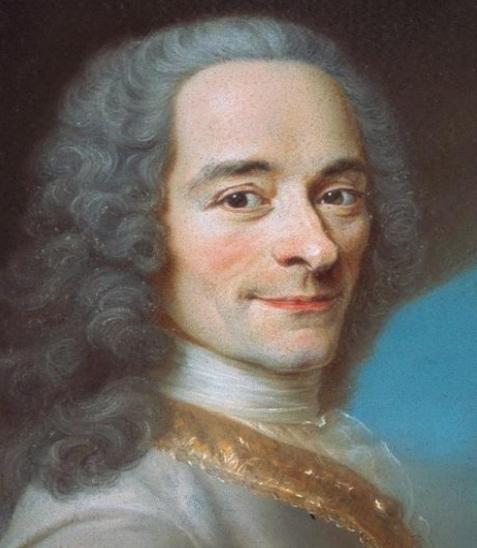
In 1704, Voltaire began to show exceptional promise as a writer. This allowed him to be accepted to a Jesuit school when he was only ten years old. Voltaire was taken to a Jesuit University, which would be considered a combination of college and high school today. There he received a “classical” education. This means that Voltaire was able to study art, history, philosophy, and literature, which were quite the achievement for the young man. At this point in time, classical education was typically reserved for the aristocracy.
After school Voltaire went on to be one of the most accomplished writers in France where he is still read to this day. His works are typically divided into four different sections: poetry, philosophy, history, and plays.[1] Today Voltaire is best known for his philosophy. His works, including Plato’s Dream, are still taught in philosophy classes today across the world.
While Voltaire was considered to be one France’s greatest writers, during the Enlightenment he had a troubled history with the aristocracy. Depending on what work Voltaire was currently publishing, he would be the darling of the court, or banished from the country due to the scandalous content.[1] While most people would try to keep out of such trouble, Voltaire seemed to revel in it. At various points until his death, Voltaire managed to get himself arrested and banished from an impressive array of nations.
The First Exile from France
In 1726, Voltaire managed to get himself involved in a potential duel with a French noble. The noble went to the King of France, Louis XV, with a complaint about Voltaire and within the space of a day Voltaire was thrown into the Bastille.[1] At the time period, the Bastille was where many nobles put those they considered to be disruptive in the hopes that they would quickly be forgotten. That means that there is no trial for the person who is imprisoned and they can be left there until they die if the noble wishes. Voltaire was understandably afraid of this outcome and instead pleaded to be allowed to go to Great Britain.[7] The French government happily agreed.
The time in England influenced Voltaire greatly. He fell in love with the concept of a constitutional monarchy. During this time Voltaire began to advocate getting rid of France’s absolute monarchy and replacing it with the British system.[7] That did not go over well with the French monarchy. To add insult to injury Voltaire began to openly criticize France’s judicial system in his writings.
Three years into the exile, Voltaire returned to France where he met Emilie du Chatelet. At the same time as this Voltaire collected all of his writings criticizing France’s government and published it in France. His work, “Philosophical Letters on the English,” was published without the French court’s approval. It was immediately banned and burned in France and caused Voltaire to be banished once again.[7]
Voltaire fled to the border of France where he met Marquise du Châtelet. Her name was Gabrielle Émilie le Tonnelier de Breteuil and she was in charge of the entire region where Voltaire was hiding out. As long as she remained on his side, she would be able to protect Voltaire from the French government, which made her Voltaire’s main supporter at the height of his career.
It seems that Voltaire had learned from his earlier dealings with the law and kept his head down while staying with the Marquise. He continued writing plays, philosophical works, and experimenting with the sciences. Many of the works he wrote during this time were banned in France because they spoke about England’s superiority. So while Voltaire had learned to keep out of trouble, he apparently hadn’t taken it to heart.

He managed to keep an interesting lifestyle by being friends with many important people in Europe. He was friends with the crown prince of Holland, Sir Isaac Newton, and many more. Most famous was his friendship with King Frederick of Prussia. Their friendship was so great that Voltaire was sent to be France’s ambassador to Prussia with orders to be a spy on the side. Voltaire was apparently a terrible spy because Frederick found out and banished Voltaire from the Kingdom of Prussia.[7]
Voltaire’s Later Years
In 1744 Voltaire left the Marquise and entered his final romantic relationship. He had an affair with Marie Louise Mignot, and the two remained together until his death. While this may seem to be sweet, it is actually kind of disturbing because Marie was his niece.[1] Their relationship was understandably a huge scandal and may have played a role in Voltaire’s move to Geneva late that year. He continued his writings in Geneva, adding religion to the list of topics he covered. Voltaire continued to insult the French monarchy with his writing, and so he continued to live in exile with his works banned from his home country. However, his works were banned from a new country at this time: England.[7] Why? Simple, because Voltaire publically supported the American Revolution and was close friends with Benjamin Franklin.
In 1778 Voltaire returned to Paris for the first time in twenty years. If you were wondering, yes, he was still banished when he returned. The 83-year-old was convinced the journey was too much for him to take and called all his friends together to say goodbye before he died. He recovered shortly after and went to see his play Irene performed where he was welcomed as a hero.[1]
He became ill again after the play and actually died on May 30, 1778. He refused to accept the last rites from the Catholic Church and was therefore denied a Catholic burial. What this means is he was buried with murderers and heretics in the outskirts of the graveyard. He became a national hero during the French Revolution, and in 1814 it was believed a bunch of religious fanatics stole his bones from his grave.[7] This was later disproved when they dug up his grave and found his body. Or so France says.

Voltaire’s life shows the dangers of being a writer during the Enlightenment. You never knew one day to the next if you would be a hero, or end up exiled from your country for the foreseeable future.
Two Key Censored Works
In 1760, Voltaire decided to publish a new comedy for the theaters of France, disregarding the fact that he was in exile from said country. This comedy, “L’Ecossaise,” helps to demonstrate the types of works that were being censored by the French monarchy at this period of history.
The comedy was set during the middle of the Enlightenment itself featuring several notable writers from the time period. While this was a rather common form of theater for the time, what Voltaire did was slightly different. He wrote a play that highlighted the achievements of his friends, the Enlightenment writers whose own works had been censored. This included writers such as Rousseau and famous scientist Sir Isaac Newton.[3] Both authors had their works banned from France during this period of history.
This alone would be enough to create a ban on the play, but Voltaire decided to take “L’Ecossaise” one step further. He decided to openly criticize the monarchy in his play.[3] By having his writers openly speak out against the king of France, and even going so far as to mention abolishing the monarchy, Voltaire made his private opinion about the crown quite public.
“L’Ecossaise” was heavily censored in France under the crown’s authority because of this open disregard for the crown.[3] This was a problem that was not just applied to Voltaire, but too many of the other Enlightenment writers. Criticisms that would be considered quite mild by today’s standards were seen then as incredibly dangerous to the various monarchies throughout Europe. For example, in France “L’Ecossaise” was considered to be very disruptive to the French government’s authority and produced quite the scandal when it was published.

Not everything went smoothly for Voltaire. Towards the end of his life he began to face serious threats from the French crown, and Voltaire began to try and get back in the good graces of the French court. He began to write works that expressed fealty for the monarchy, especially towards then queen Marie Antoinette.
To achieve this goal, Voltaire followed a process known as “galanterie.” What this process entailed was that with each work he completed, Voltaire would send it to the French court where they would read it over. Once they had finished reading the document the court would then edit it so it would be more “appropriate” for the French public.[4] Many of Voltaire’s later works underwent this process in the hopes of gaining support from the monarchy. And as you can probably guess, he was spectacularly bad at getting on the crown’s good side, which led to his last exile.
Voltaire was just one of many writers who had to go through such actions. Other writers from the Enlightenment also had to go through the process of “galanterie” in order to try and get published.[4] Many would fail to pass the process and would have their works banned. Others would go around the process and try to get their works published in other countries. While not the only writer to receive such treatment during the 18th century, Voltaire is one of the best examples of how these writers could be considered disruptive by the various monarchies throughout Europe.
Why Does Voltaire Matter?
It may seem strange to be looking at one particular writer from the Enlightenment when there are so many to choose from. Why look at Voltaire over other brilliant writers like Immanuel Kant or Thomas Hobbes? What about his writing made Voltaire so special to not just France, but the world today? Voltaire shows perfectly how disruptive these writers were considered. The aristocracy feared his writing because it reached out to the everyday people of France in the forms of banned books and pamphlets. It challenged them to think and question authority. Even when Voltaire tried to behave and follow censorship, his writings were considered to be too dangerous to be allowed to spread through France. The monarchy feared the power of written word so deeply that they used any means possible to keep it under lock and key. This was shown by their desperate attempts to exile Voltaire as far away from them as possible.
But Voltaire also shows just how disruptive Enlightenment writers actually were at this point in time. Voltaire’s writings were embraced by the French people dreaming of a better tomorrow, and his writings helped to create the French Revolution which eventually toppled the French monarchy. This means, indirectly, that what Louis XV feared was true: Voltaire’s writings were disruptive enough to destroy the French monarchy. Written words are a powerful force, and Enlightenment writers like Voltaire only made that force stronger.
Notes
- Biography.com, “Voltaire Biography: Writer, Historian, Philosopher,” Web, (2015).
- Great Caricatures, “Censorship in 19th Century France,” Caricatures and Cartoons, Web, (2010).
- Logan Conner, “Performing Criticism During Cultural War: The Case of Voltaire’s L’Ecossaise (1760),” Eighteenth Century Fiction Vol 23, Fall 2010.
- Thomas Wynn, “Volatire, Marie Antoinette, and the politics of Galantarie,” French Studies Vol 6, Jan. 2011.
- Wikipedia, “The Enlightenment:France,” Wikipedia, Web (n.d.).
- Wikipedia, “The Enlightenment,” Wikipedia, Web (n.d.).
- Wikipedia, “Voltaire,” Wikipedia, Web (n.d.).
Originally published in History of the Book: From Tablet to Tablet, Western Oregon University, under the terms of a Creative Commons Attribution-NonCommercial 4.0 International license.




